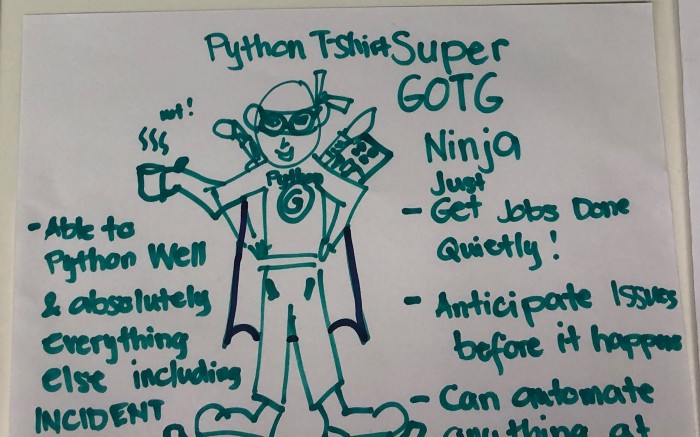Virtual Team-Building Activities That Actually Bring Remote Teams Together
Key Points
Team culture doesn’t have to disappear just because you’re remote—**but it does need more intention and creativity.
Focus on real connection, not just productivity—**a happy, supported team is a productive team.
Start small and keep it real—**no one needs more Zoom fatigue. Choose team-building ideas that are flexible, fun, and low-pressure.
Working from home has its perks. But it also makes it a lot harder to feel connected as a team.
You can hit your deadlines and show up to Zooms, but that doesn’t mean people feel seen, valued, or part of something.
I’ve noticed that as more of us work remotely (and love the flexibility), we also crave a bit of connection and shared experience—especially beyond spreadsheets and Slack messages.
While tools like cloud storage and virtual meetings keep things running, they’re not enough to build real team energy. And honestly, without that bond, culture fades fast.
That’s where virtual team-building activities come in.
And no, they don’t have to be awkward icebreakers or forced fun. When done right, they’re a chance to reconnect, laugh, recharge, and strengthen the trust that makes teams work—even from different time zones.
If you’re managing a remote team and want to create a stronger sense of community, here are some practical, low-pressure ideas that actually work.
Make Space for Real Conversations
Instead of jumping straight into work talk every meeting, try opening with a simple, human question:
What’s one thing that made you smile this week?
What’s your current favorite snack or show?
What’s your dream travel destination?
These light, personal check-ins only take 5 minutes but go a long way in helping people feel connected as people—not just co-workers.
Pro Tip: Rotate who asks the question each week to give everyone a voice and keep it fresh.
Host Low-Key, No-Pressure Virtual Hangouts
Not every team-building moment has to be structured. Casual hangouts—like a monthly virtual coffee break or 15-minute Friday trivia—can help people unwind and show up as themselves.
A few fun, low-maintenance ideas:
Online escape rooms;
Digital scavenger hunts;
“Bring your pet to Zoom” day;
Remote lunch-and-learns (where someone teaches something non-work-related.)
The goal isn’t perfection—it’s presence.
Celebrate the Little Wins Together

When working remotely, it’s easy for wins (and people) to go unnoticed. That’s why celebrating progress—big or small—matters more than ever.
Shout out team wins during weekly calls;
Create a virtual “kudos wall” in Slack or Teams;
Send surprise coffee gift cards or e-notes of appreciation.
Recognition helps people feel seen and valued—and that kind of energy is what holds a team together.
Icebreaker Exercises
Icebreakers are an effective way to introduce new team members, but they can also be a fun and frivolous way to bond existing team members together.
If you’re looking for inspiration, try asking every team member to submit a fact about themselves anonymously.
Then, compile these facts into a spreadsheet, along with a list of everyone on the team.
Once you’ve got your spreadsheet ready, team members simply have to guess which fact is linked to each colleague!
Virtual Team-Building Activities: Photo Sharing

In this digital era, people have access to a camera at all times.
Encouraging team members to share a non-work photo can be a great little virtual team activity, and a fun way to start your daily meeting.
Not only does it allow your team to learn a little more about individual members, but it’s also a great way to ease everyone into the working day too.
However, you don’t have to limit yourself to snaps taken outside of work.
With a virtual photo booth, you can capture your remote teams at work too.
From fancy dress days to hilarious props, adding a twist into your virtual photography sessions will keep employees laughing.
What’s more – it can create some entertaining content for your company blog or social media accounts.
Weekly Trivia

A virtual quiz using an app is a fantastic way to forge strong teams, particularly when there’s a competitive element thrown into the mix.
Pit sales teams against marketing teams or the accounts department against HR, and you’ll soon have a companywide quiz tournament on your hands.
There are plenty of free quizzes available online, so you’ll never struggle to come up with tricky questions to include.
If you want to make things a little more exciting, however, give one team member or team the task of creating the quiz each week.
Virtual Team-Building Activities: Live Office

When people are working remotely, they typically only liaise with colleagues ‘face-to-face’ when virtual meetings are scheduled.
For some workers, being based at home makes it hard for them to focus or maintain their productivity.
To resolve this, why not host a live, virtual office?
Launch a video chat at the start of each day and invite team members to drop in for as long as they like.
Employees who work better in an office environment will enjoy the camaraderie and company as they continue to work from home, and every member of the team will have the opportunity to engage with their colleagues on a regular basis.
Movie Night

You might be wondering how you can host a movie night virtually, but it’s easier than you think.
Stream the movie from one location, such as a conference room or someone’s home, and invite everyone on the team to join a group chat or video call.
As you watch the movie, team members can interact with one another via text or video communication.
Hosting a virtual event outside of work hours is an effective way to build a strong team.
When people socialize outside of work, they are more relaxed and tend to open up more easily.
By incorporating non-work events into your virtual schedule, you’ll get a greater insight into the lives of your team members.
Learning How to Manage a Remote Workforce

As employees adjust to working from home, managers and business owners are learning how to manage remote teams effectively too.
With practical, social, and operations issues to address, the shift in working practices has been a steep learning curve for everyone involved, and the journey isn’t over yet.
By focusing on keeping your teams together and facilitating on-going cohesion, however, you can ensure that your employees continue to benefit from the stimulating, supportive, and motivating working environment they need to reach their full potential.



















